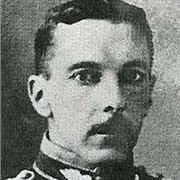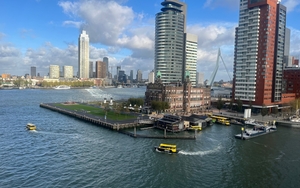FOR those with a Boys Own inkling of Liverpool's fighting past, it is perhaps World War One superhero Noel Chavasse whose name springs to mind first.
But there were other local heroes, bravehearts who helped stem the impossible tide of blood on the fields of Belgium from 1914-1918. In their moment they were decorated with the highest military honour King and Country could bestow: the Victoria Cross.
Unlike Chavasse, these men have no parks or blue plaques in their memory. In many cases, faraway graves lie untended and no family can be traced.
File, then, under "who knew?", the case of one: Liverpool's Ernest Wright Alexander.
But now there is some recognition. A commemorative York stone is to be unveiled this Sunday (August 24) in memory of Alexander. The date marks the exact 100th anniversary of his decoration with one of the first Victoria Cross medals in WWI.
 Ernest Wright AlexanderIn 1914, against overwhelming odds, Alexander, Lieutenant Colonel in the 119th battery of the Royal Field Artillery, defended his battery at Elouges in Belgium from German soldiers - enabling them to withdraw without serious loss.
Ernest Wright AlexanderIn 1914, against overwhelming odds, Alexander, Lieutenant Colonel in the 119th battery of the Royal Field Artillery, defended his battery at Elouges in Belgium from German soldiers - enabling them to withdraw without serious loss.
The citation for the medal in the London Gazette also highlighted the bravery of the Princes Park man in rescuing a wounded man under heavy fire “with the greatest gallantry and devotion to duty”.
Alexander was one of eight men from the city to be awarded the Victoria Cross during WWI, and the others will be honoured in the same way between now and 2018. It is part of a government scheme which will see every recipient remembered.
The paving stone in Alexander's honour will be unveiled at Princes Park gates at 11am, attended by Lord Mayor, Councillor Erica Kemp, veterans and serving soldiers from the Royal Artillery and members of the Friends of Princes Park.
The Lord Mayor said: “Ernest Alexander was a brave and fearless soldier whose selfless actions saved many lives.
“It is important that his contribution to World War One is remembered and I am privileged to be able to attend the unveiling of the stone.
“It will be a permanent reminder of the incredible contribution that he made to the war effort and his role in making sure that more soldiers weren’t lost.”
Ernest was also awarded the Companion of the Order of the Bath, the Companion of St. Michael and St. George, and the Belgian Croix de Guerre. He is also remembered with a memorial at Putney Vale Cemetery in London.
He retired in 1920 to live in Kingsbridge, Devon, where he died on August 25, 1934, aged 63. Efforts to trace his relatives, including by a local historian, have proved unsuccessful.
Until now, his worth (at least on paper) has amounted to £90,000, the sum his VC medal was sold for in 1999.
Leaving no known relatives but much in the way of legacy, salutes are optional next time one bicycles by.














